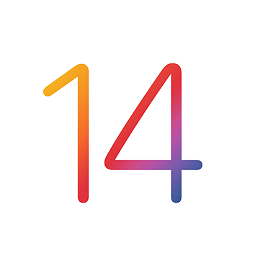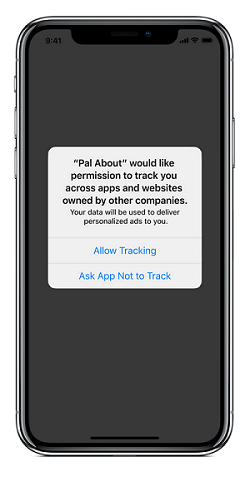
Apple is at direct odds with Google, Facebook and a big part of the industry when it comes to advertising and tracking. The company has taken a series of steps to block ad tracking technologies such as third-party cookies while taking ever greater control over advertising within its app ecosystem. In yet another step in that direction, the company announced major new privacy policies that will coincide with iOS 14 due for release in the fall of 2020.
One long-anticipated change is getting a lot of buzz in the industry. The use of Apple’s device identifier IDFA (Identifier for Advertisers) will now require explicit consent from consumers. IDFA is widely used today by apps, advertisers, and mobile measurement partners (MMPS) to attribute app downloads to ads and to match behavioral data collected across the internet to specific devices for retargeting. The consent screens are not subtle. Opt-in rates are expected to be 20% or below which will cause an immediate, dramatic drop in the amount attribution data collected. Under these conditions, the IDFA could become irrelevant and Apple may have more planned for the App Store in relation to attribution.
Apple’s move casts tremendous doubt and uncertainty over third-party attribution platforms which rely heavily on the IDFA. The identifier can no longer live at the heart of “people-based” data models and these platforms will need to innovate around the changes which is not trivial. Marketers and agencies need to rethink their approach to attribution and question investment levels in platforms that could be obsolete in a few short years.
Today’s Attribution Platforms Are Not Future-Proof
Apple’s answer to app install attribution is the SKAdnetwork which is a framework designed to preserve a customer’s identity while measuring cost per install (CPI). The App Store plays a central role in this new approach to attribution. When ads are clicked, the publisher of the app and the ad network sends information about the click and the campaign to the App Store which in turn validates the conversion without sending back any personally identifiable information.
The approach also takes away the core value proposition currently held by third-party attribution platforms and puts it into the App Store. There are a lot of unknowns related to how this will play out but here are some questions that advertisers and app marketers should ask themselves and their teams about attribution:

Does the move make current attribution models obsolete? It’s too early to tell but the changes demonstrate that major attribution platforms are not future proof and marketers need directional answers to these questions right now. You may get some scripted answers around innovation. Dig deeper for real, forward-thinking solutions that move away from “people-based” attribution or “finger-printing” techniques that could be blocked in the future.
Marketers Need Privacy-Centric Attribution Solutions
While it remains unclear how today’s attribution platforms and technologies will stay relevant in an IDFA-free world, one thing is for certain, tracking consumers around the internet is not a viable long-term solution. What is clear is that privacy-centric approaches are needed that focus on first-party data and the customer experience.
Apple has not said which conversion event data if any will be shared or whether it can be used for retargeting. The weakening of attribution data is only likely to continue which will severely limit the ability of marketers and agencies to segment campaigns and optimize conversion. The development time and technical resources needed to to attribution SDKs every time Apple or Google makes like this is another important consideration.
Is there a silver lining in all of this? Times of uncertainty present tremendous opportunities. No matter which app you need to link into or whether it’s web banners, deferred deep linking or custom QR codes. Now is the time for marketers and agencies to think differently and consider privacy-centric platforms that let you break free from attribution SDKs while lowering your acquisition and re-engagement costs.
Categories
Attribution, Deep Linking, Deep Linking Analytics, Deeplinking, Display Advertising
Submit a Comment